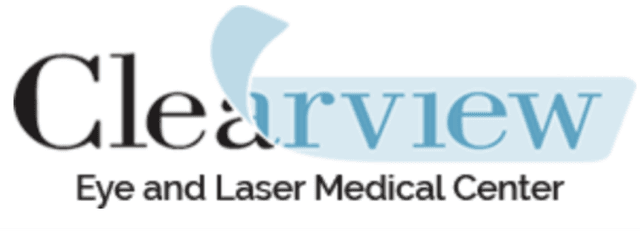
San Diego, CA May 14, 2012
May is Healthy Vision Month and according to an NEI survey [1], vision is the one sense that people fear the most of losing. Ironically, one's eyesight is also often taken for granted.
Many conditions of the eye can be treated. Millions of Americans have common, correctible vision problems such as nearsightedness, farsightedness, presbyopia [inability to see close up], and astigmatism. The prevalence of nearsightedness is increasing and recent studies are confirming "mother's intuition" that activities early in life may affect growth of the eye and thus, nearsightedness.[2] Individuals who spend more time reading in academic pursuits, more commonly develop nearsightedness.[3-5] "Recent studies suggest that using bifocals for children or eyedrops may help to diminish nearsightedness so visiting an eye doctor is very important for children and young adults [6]," said Dr. Sandy T. Feldman of ClearView Eye & Laser Medical Center.
During different stages of life, the eyes are also affected by aging. One clear sign of being in one's forties, is the difficulty seeing menus and needing more light to see. This issue can easily be treated with eyeglasses, contact lenses or refractive surgery, so seeing an eye doctor during the middle age period is also important.
As one ages further, the risks of eye diseases also increase. "One of the best things for people to do is to get regular eye examinations, even if they are not experiencing difficulties. Everyone should approach their annual eye examine like they do with their annual physical, it's an appointment that is critical to maintaining your overall health status." said Dr. Feldman. "Some eye diseases like glaucoma or diabetic retinopathy may be silent yet damage is occurring and would never be detected without a regular eye exam" continued Dr. Feldman.
There are also certain groups that are more at risk to eye diseases. A recent study found that Latinos have higher incidence rates of visual impairment, blindness, diabetic eye disease, and cataracts than non-Hispanic whites and that more than 60 percent of eye disease in Latinos remains undiagnosed.
Dr. Sandy T. Feldman offers these tips for individuals:
Know your family eye health history as some conditions are inherited.
As a leader in the field of ophthalmology, Dr. Feldman has participated in FDA clinical studies of custom LASIK. Currently, she is involved in studies of a new treatment to halt the progression of keratoconus, a disease in which the fitting of contact lenses can become challenging. In 2009, she was one of ten laser eye care providers in the U.S. to receive the Goldline Award as seen Forbes Magazine. In 2010, she was awarded the Silver Elite RealSelf award, and in 2011, she was awarded Top Doc San Diego, inducted into the prestigious American College of Ophthalmic Surgeons and was one of nation's 15 leading laser eye surgeons as seen in Newsweek magazine. Dr. Feldman is a member of the American Academy of Ophthalmology and American Society of Cataract and Refractive Surgery.
Clearview Eye and Laser Medical Center
6255 Lusk Blvd, Suite 100, San Diego, CA 92121
858.452.3937
1. http://www.nlm.nih.gov/medlineplus/magazine/issues/winter12/articles/winter12pg10.html
2. Wallman J, Turkel J, Trachtman J. Extreme myopia produced by modest change in early visual experience. Science. 1978;201:1249-1251.
3. Fredrick, DR. Myopia. BMJ. 2002 May 18; 324(7347): 1195-1199
4. Teasdale TW, Schmidt E. Myopia and its relationship to education, intelligence and height: preliminary results from an on-going study of Danish draftees. Acta Ophthalmol Suppl. 1988;185:41-43.
5. Dunphy EB, Stoll MR, King SH. Myopia among American male graduate students. Am J Ophthalmol. 1968;65:518-521.
6. Chiang MF, Kouzis A., Pointer RW et al. Treatment of childhood myopia with atropine eyedrops and bifocal spectacles. Binocul Vis Strabismus Q. 2001;16(3):209-15.
7. Varma R., Choudhury F, Klein R, et al. Los Angeles Latino Eye Study Group. Am J Ophthalmol 2010. 149:752-61.
8. Varma R., Chung J, Foong A, et all. Los Angeles Latino Eye Study Group. Four year incidence and progression of visual impairment in Latines: The los Angelese Latino Eye Study. Am J Ophthalmol. 2010. 149: 713-727.

Call Us: (858) 452-3937
8:30AM - 7:00 PM - Monday through Saturday (Saturday until 11:30AM)